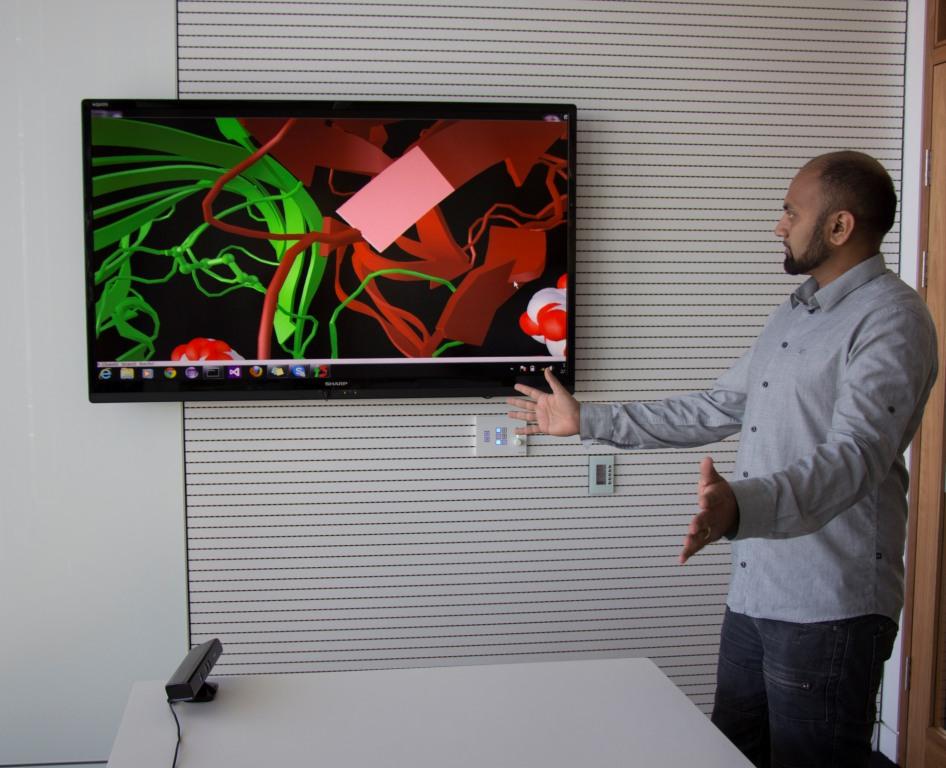By Lidija Bosnjak
It’s been nearly 40 years since Star Wars Episode IV hit our screens – but sadly humans haven’t yet evolved to develop Jedi powers.
That’s not to say we aren’t trying.
You might remember the 2002 movie Minority Report. This futuristic flick made what’s known as ‘3D gesture control’ famous in the modern world. This technology is now a popular feature of many computer games that are controlled using body movements.
But it’s not all fun and games. The technology can also be applied in the medical field. It can help researchers design enhanced therapeutics and better understand their function by allowing them to visually observe and manipulate 3D structures of molecules like proteins.

The force is strong with this one: computer engineer and PhD student, Kenny Sabir demonstrates gesture control using a Kinect device.
Unfortunately this technology can be quite challenging for researchers to use. It often requires them to learn complex keyboard and mouse combinations so they can rotate the structures, select parts of large molecules and redefine the centre of rotation.
So we’ve teamed up with the Garvan Institute of Medical Research to develop the Molecular Control Toolkit – a new system that makes it more intuitive to control 3D molecular structures.
The Toolkit allows users to manipulate 3D objects in their hand by connecting multiple gesture and voice recognition devices (currently the LeapMotion or Kinect). It’s designed to be adaptable to any molecular graphics system and even supports voice commands when available. Check it out in action.
It’s the first toolkit for molecular graphics that supports multiple devices with a set of controls that are rich enough to be used in the daily work of many life scientists. And it’s pushing the boundaries of biological data visualisation and interaction.
***
The Molecular Control Toolkit was unveiled yesterday at BioVis, which is part of IEEE VisWeek, a conference in computer science visualization.

